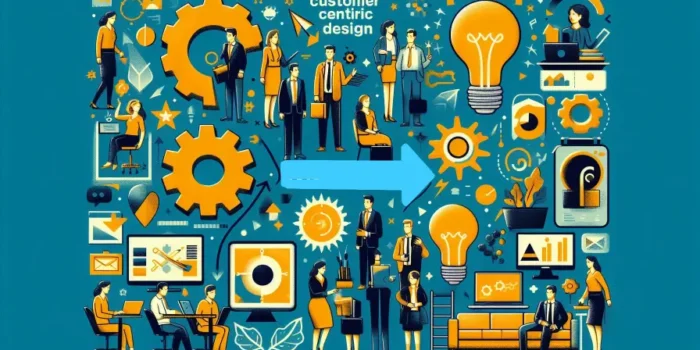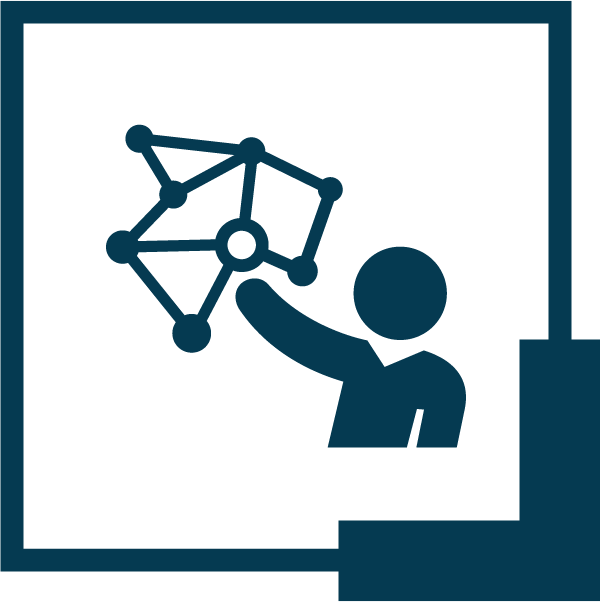In the age of digitization, where data is the new oil and trust is the most valuable currency, the world is witnessing a technological revolution that is reshaping industries – Blockchain and Smart Contracts. These seemingly complex yet compelling buzzwords are not just catalyzing disruptive changes in the financial sector, but they’re also making substantial inroads into the realm of web development. With the world increasingly getting entrenched in digital interactions, these concepts bear the potential to redefine our understanding of online transactions, security, and transparency. This blog is an exploratory journey into the intricate labyrinth of blockchain technology and smart contracts, with a focused spotlight on their potential to radically transform the landscape of web development. We will dissect their workings, the symbiotic relationship they share, and how this harmony could usher in a new era in the virtual world.
Understanding Blockchain and Smart Contracts: A Deeper Dive
To fully appreciate the revolutionary potential of Blockchain and Smart Contracts in web development, it is essential to grasp their basic workings, the uniqueness of their features, and the interconnected synergy they share.
Blockchain: More Than Just a Buzzword
In its most basic essence, a Blockchain is a decentralized, distributed ledger that systematically records transactions across a multitude of computers to ensure a heightened level of transparency and robust security. What sets blockchain apart is the way it handles information: it stores data in interlinked blocks that are chronologically arranged in a chain.
Key Features of Blockchain:
- Decentralization: Unlike traditional databases that store information in a central location, blockchain’s data is distributed across a network of computers (nodes), ensuring no single point of failure or control.
- Transparency: Every transaction on the blockchain is visible to all participants in the network, fostering a transparent environment.
- Security: Blockchain’s inherent structure makes it highly resistant to modification or hacking. Altering any single block would require changing every subsequent block and the very consensus of the network.
- Smart Contracts: The Blockchain Catalyst
Smart Contracts, on the contrary, are self-executing contracts wherein the terms of the agreement are embedded directly into lines of code. These digital contracts are stored on the blockchain and can be automatically executed without the need for a third-party intermediary.
Key Features of Smart Contracts:
- Autonomy: Smart contracts are automated and can function independently without the need for a central authority.
- Trustability: They exist across a decentralized blockchain network, making transactions transparent, traceable, and irreversible.
- Speed & Savings: Automated processes eliminate the need for intermediaries, reducing time and cost associated with traditional contract enforcement.
Smart contracts use the underlying blockchain platform to carry out agreements in a decentralized manner, thus making interactions transparent, conflict-free, and efficient.
In the next sections, we will further explore how this dynamic duo is poised to influence web development in profound ways.
The Role of Blockchain in Web Development:
Blockchain technology, with its core features, is steadily carving its space in the realm of web development, promising transformations in multiple dimensions:
Data Security: The decentralized nature of blockchain ensures that data is not confined to a single location, thereby bolstering data security and integrity. The technology renders hacking attempts ineffective since tampering with data in a single block necessitates altering the entire chain. A practical example of this can be seen in Guardtime, a cyber-security provider that migrated its digital signature system to a blockchain-based system, greatly enhancing data security.
Distributed Hosting: Blockchain can facilitate decentralized web hosting, diminishing the risk of server downtime, and promising a more resilient and reliable web infrastructure. The InterPlanetary File System (IPFS), a protocol specifically designed to build a permanent and decentralized method of storing and sharing files, is an excellent example of this use case.
User Authentication: Blockchain can streamline user authentication and identity management, offering a secure and efficient method for users to verify their identities online. Civic, a blockchain-based identity verification solution, is a case in point where user information is verified once and then reusable across different platforms, reducing the risk of identity theft and improving the user experience.
DApps like CryptoKitties, a blockchain-based virtual game that allows players to adopt, raise, and trade virtual cats, and Decentraland, a virtual reality platform owned by its users, have showcased the power of blockchain in spawning secure, decentralized applications.
The Role of Smart Contracts in Web Development:
Smart contracts have the potential to bring automation, security, and cost-efficiency to the table in web development:
Automated Verification: Smart contracts have the ability to automate and verify online transactions or agreements, eliminating the need for intermediaries and reducing the potential for human error. For instance, smart contracts on the Ethereum platform are used for creating Decentralized Autonomous Organizations (DAOs), enabling self-governance based on programmable rules.
Improved Security: Smart contracts provide a secure environment for transactions, as the terms are pre-defined, and the execution is automated, leaving no room for fraud or manipulation. The tamper-proof nature of smart contracts has been utilized in projects like Augur, a decentralized prediction market platform.
Reduced Costs: By automating transaction processes and eliminating intermediaries, smart contracts can significantly lower operational and transactional costs. A decent example of this can be seen in supply chain management, where smart contracts automate the validation of transactions, the transfer of goods, and payments, resulting in a reduction of costs and time.
Real-world applications of smart contracts in web development are already quite visible. Platforms like Ethereum are enabling developers to build DApps powered by smart contracts, paving the way for a secure and efficient digital infrastructure.

The Future of Web Development with Blockchain and Smart Contracts: Key Trends
The promising future of web development, coupled with blockchain and smart contracts, hints at a transformative shift in the digital landscape. This shift is catalyzed by emergent trends and innovations that are leveraging these technologies to offer novel solutions in web development and beyond. Here are some:
- Decentralized Finance (DeFi): DeFi represents a shift from traditional, centralized financial systems to peer-to-peer finance enabled by decentralized technologies built on Ethereum. DeFi platforms can operate as decentralized applications (DApps) that offer various financial functions, from lending and borrowing to insurance and exchanges, all without the need for an intermediary.
- Non-Fungible Tokens (NFTs): NFTs are unique digital assets that leverage blockchain technology to verify their authenticity and ownership. They have garnered significant attention due to their ability to tokenize art, real estate, and other types of assets. Companies in Malaysia and beyond are finding novel ways to integrate NFTs into their websites and platforms, allowing users to trade and display their NFTs online. This could herald a new era of digital asset management and monetization on the web.
- Web 3.0 and Interoperability: As the next phase of the internet, Web 3.0 focuses on creating a semantic, interconnected web where data can be shared and utilized across platforms and applications. Blockchain and smart contracts play a key role in this evolution, enabling decentralized storage and peer-to-peer interactions. The ability to operate seamlessly across different blockchains, or interoperability, is set to be a significant trend that could redefine how data is shared and used in web development.
Here’s a comprehensive look at the implications of the above mentioned technologies on the ever-growing web developement industry:
| Trend | Implications for Web Development |
| DeFi | Creation of decentralized financial platforms |
| NFTs | New avenues for digital asset management and monetization |
| Web 3.0 & Interoperability | Seamless data sharing and use across platforms |
As blockchain and smart contracts mature, they hold the potential to become industry standards, leading the way for a more decentralized, secure, and user-centric web. The integration of these technologies into web development strategies could fundamentally reshape the way we interact with the digital world.
Blockchain and Smart Contracts: Challenges and Opportunities
Despite their potential, implementing blockchain and smart contracts in web development is not without challenges. The steep learning curve, scalability issues, and the need for regulatory clarity are some of the hurdles that need to be addressed.
However, the benefits – increased data security, improved trust, and cost reductions – make it a worthwhile endeavor. Businesses in Malaysia can prepare for these challenges by investing in blockchain education and partnering with experienced blockchain web development companies like SegWitz.
Conclusion
In conclusion, blockchain and smart contracts are not just temporary trends; they are powerful technologies with the potential to redefine the web development landscape forever. As we move towards a more decentralized and secure digital future, businesses must stay abreast of these technologies and consider integrating them into their web development strategies to stay ahead of the curve.
At SegWitz, we understand the transformative potential of blockchain and smart contracts. As your reliable web development partner, we are equipped to help our clients navigate the blockchain landscape and integrate these technologies into their business models. The future is here, and it’s time to embrace it.
In the words of the late Steve Jobs, “Innovation distinguishes between a leader and a follower.” So, let’s lead the way to a more secure, transparent, and efficient digital future with blockchain and smart contracts.





 Booking System
Booking System eCommerce
eCommerce On-Demand Services
On-Demand Services Community App
Community App Ordering App
Ordering App Loyalty App
Loyalty App Online Learning
Online Learning Directory
Directory Marketplace
Marketplace SaaS
SaaS P2P Platform
P2P Platform eHailing
eHailing Healthcare
Healthcare Finance
Finance Logistics
Logistics Education
Education Food & Beverage
Food & Beverage Retail
Retail FMCG
FMCG Sports
Sports Travelling
Travelling Manufacturing
Manufacturing Renewable Energy
Renewable Energy Mobile Application Development
Mobile Application Development Web Application Development
Web Application Development Source Code Review
Source Code Review Internet of Things (IoT)
Internet of Things (IoT) Cyber Security
Cyber Security SegWitz SandBox – Dev-Team as Subscription
SegWitz SandBox – Dev-Team as Subscription SegWitz Streamline – SOP Systemization
SegWitz Streamline – SOP Systemization SegWitz ScaleUp – Tech Transformation of SME & PLC
SegWitz ScaleUp – Tech Transformation of SME & PLC SegWitz StartUp – MVP & Scaling
SegWitz StartUp – MVP & Scaling